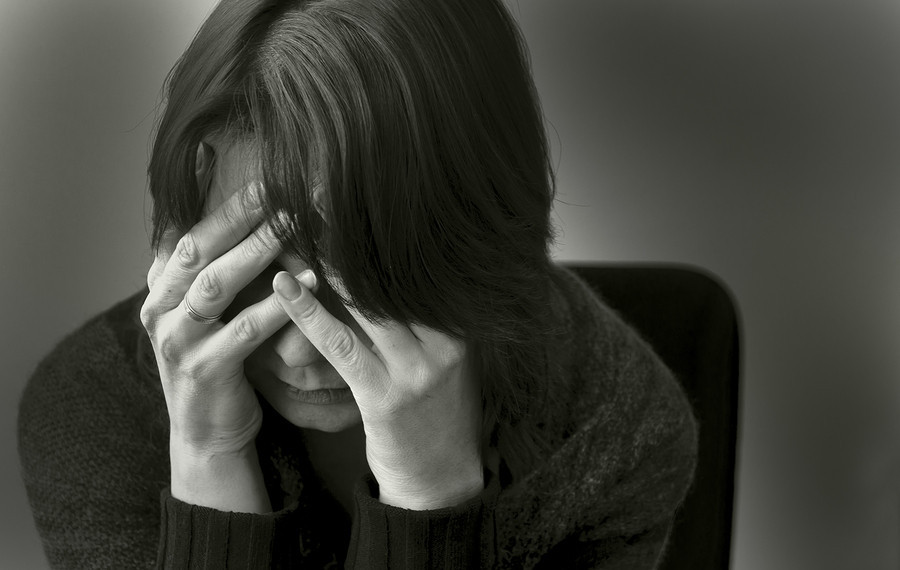Covid is making people depressed, lonely, drug-addicted, and suicidal.
According to a new ABC-Washington Post poll, covid has had a dramatic impact on the way you and I lead our lives. Says the Post, “Roughly 9 in 10 say they are staying home ‘as much as possible’ and are practicing social distancing to lessen the risk of getting the virus. Nearly 9 in 10 say they have stopped going to bars and restaurants. About 6 in 10 say they have stockpiled food and household supplies at home.”
The result, according to new data from the Kaiser Family Foundation, is emotional pain. This is worldwide. According to a survey of helpline calls in 20 countries, “loneliness and concerns about the impacts of the pandemic drove most of the [helpline] callers.” Yes, calls about loneliness and the impact of the pandemic overrode calls about “imminent threats such as suicidal thoughts or abuse.”

But according to an urgent statement issued by the three leading societies of children’s’ doctors, The American Academy of Pediatrics, the American Academy of Child and Adolescent Psychiatry and the Children’s Hospital Association, the data from helpline callers is not accurate. Addiction and suicides are up. Way up.
But addiction and suicides are concentrated in teenagers.
Say the three pediatric medical organizations, “statistics…showed that the percentage of emergency room visits for mental health emergencies among children ages 5-11 rose by 24 percent…The same study showed a more than 50 percent increase in emergency room visits for suspected suicide attempts among girls between the ages of 12-17.”
Why are we seeing this rise in loneliness, depression, and suicide attempts?
You have two selves, an internal and an external self. Your internal self is a product of your parasympathetic nervous system. Your external self is a product of your sympathetic nervous system.
Your internal self is your system for maintenance and repair. But your external self engages with friends, with co-workers, and with family. What’s more, your external self registers signals from others that they want you, signals that you are needed. And you need those signals from others if you’re going to come to life.
When you wake up in the morning and your mind feels around for every ache and pain, for every sign that you are weak and aging, that’s your internal self and its repair mechanisms. When you go to work, talk with your friends, work on something together, forget your maladies, and get into the flow, that’s your external self.
And here’s the trick. Your internal self brings depression. Your external self can bring you normalcy, and occasionally joy.
When you are stuck at home in endless covid lockdown, your internal self takes over. It magnifies your hypochondria, your suspicion that you have cancer or some other deadly disease. Your internal self also makes you, guess what? Depressed.
But when you get out of the house, go to the office, and talk with friends and co-workers, your external self takes over. It forgets about your symptoms of illness and gives you a sense of being alive.
In lockdowns like the ones covid has forced upon us, your internal self is giving you the blues. Instead of the exhilaration of being with others, you have anxiety, loneliness, and often a sense that no one needs or wants you. You have the feeling that maybe there’s no reason for you to stay alive.
Meanwhile, say the three major associations of children’s doctors, many of our kids are also in a mental health crisis. Or, as the American Academy of Child and Adolescent Psychiatry’s President Gabrielle Carlson says, doctors who work with children and adolescents, “are caring for young people with soaring rates of depression, anxiety, trauma, loneliness, and suicidality that will have lasting impacts on them, their families, their communities, and all of our futures. We cannot sit idly by,” stresses Carlson, “this is a national emergency.”
What’s the solution? Living things, whether they are bacteria or human beings, are built to be around others. When we connect with others, we thrive. When we are alone, we wither and sometimes die.
But fortunately in the 21st century we are connected to others thanks to a new technology, a technology that lets us come together even when lockdowns tear us apart. For fifteen years, from 1988 to 2003, I was stuck in a bed and separated from others by an illness called me/cfs—myalgic encephalomyelitis/chronic fatigue syndrome. But I used the new technology to found two international scientific groups and to write three books. What is the technology that saved me? What is that instant path to social connectivity? It’s the Internet.
So to cure your lockdown blues, go out on the new social landscape, the landscape of cyber sociality. Go virtual. Interact with others online. And let your kids do it, too. Feed your external self.
References:
https://www.kff.org/health-reform/issue-brief/the-implications-of-covid-19-for-mental-health-and-substance-use/https://www.childrenshospitals.org/Newsroom/Press-Releases/2021/Sound-the-Alarm-for-Kids
https://www.nature.com/articles/d41586-021-03454-x
______
Howard Bloom has been called the Einstein, Newton, and Freud of the 21st century by Britain’s Channel 4 TV. One of his seven books–Global Brain—was the subject of a symposium thrown by the Office of the Secretary of Defense including representatives from the State Department, the Energy Department, DARPA, IBM, and MIT. His work has been published in The Washington Post, The Wall Street Journal, Wired, Psychology Today, and the Scientific American. He does news commentary at 1:06 am ET every Wednesday night on 545 radio stations on Coast to Coast AM. For more, see http://howardbloom.institute.
